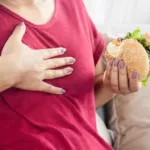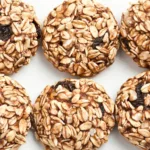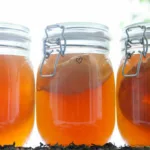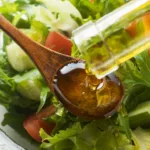Can Cheese Trigger Acid Reflux? Here’s What You Need to Know
If you’re a cheese lover, the idea that it might trigger acid reflux can be a little hard to swallow (pun intended!). But is it really true? Can that delicious slice of cheddar or mozzarella bring on the heartburn? Let’s break it down in a way that’s easy to understand!
Understanding Acid Reflux and What Causes It
First off, what exactly is acid reflux? It’s when stomach acid flows back up into the esophagus, causing that all-too-familiar burning sensation in your chest. For some, this happens every once in a while, but for others, it’s a regular struggle. A big part of managing acid reflux is figuring out which foods might trigger it.

Cheese and Acid Reflux – Can They Mix?
So, can cheese trigger acid reflux? Unfortunately, the answer is “yes” for many people. While cheese is delicious and versatile, it can be a problem for folks with acid reflux. Here’s why:
1. Fat Content in Cheese
Many cheeses are high in fat, and high-fat foods can relax the lower esophageal sphincter (LES). The LES is the muscle that keeps stomach acid where it belongs—in your stomach. When this muscle relaxes, it can allow acid to travel up into your esophagus, causing reflux.
2. Dairy Sensitivity
Some people may also have a sensitivity to dairy, and dairy products like cheese can exacerbate reflux symptoms. This is especially true if you’re lactose intolerant, though even non-lactose intolerant individuals might feel some discomfort from the richness of cheese.
3. Type of Cheese Matters
Not all cheeses are created equal when it comes to reflux. Hard, aged cheeses (like cheddar or parmesan) tend to be higher in fat and can trigger reflux more often. Meanwhile, softer cheeses (like ricotta or mozzarella) might be a bit gentler on your system, although they still have the potential to cause issues if you’re sensitive.

What About Cheese Lovers? How to Enjoy Cheese Without the Reflux Woes
If you love cheese but hate the heartburn, don’t worry, there are ways to enjoy your favorite dairy delight without triggering acid reflux.
1. Choose Low-Fat Options
If cheese is a must in your diet, go for lower-fat varieties. These are less likely to trigger reflux. Think: part-skim mozzarella or goat cheese. They’re easier on your stomach and tend to be a little less rich.
2. Pair It Wisely
Sometimes, it’s not just about the cheese—it’s how you eat it. Pairing cheese with high-fiber foods like whole-grain crackers or fruits can help balance out the fat content and make it easier on your digestive system. Just make sure not to pair it with anything too acidic, like tomatoes, which could make reflux worse.

3. Moderation is Key
You don’t have to cut cheese out entirely, but moderation is your best friend. Small portions of cheese spread throughout the day may be more manageable than indulging in a big cheesy meal all at once.
4. Avoid Eating Cheese Late at Night
Eating right before bed is one of the worst things you can do if you’re prone to acid reflux. Cheese, being a high-fat food, may trigger symptoms if eaten too close to lying down. Try to make cheese part of your earlier meals instead of late-night snacks.
What Cheese Is Less Likely to Trigger Acid Reflux?
While cheese is often a culprit for acid reflux, there are some types that are a little more gentle on your system:
- Mozzarella (especially fresh, part-skim)
- Ricotta (low-fat versions are great)
- Goat cheese (generally easier to digest)
- Feta (in moderation, it’s usually okay)
Cheeses with lower fat content tend to be less likely to cause problems compared to richer, higher-fat cheeses like cheddar or blue cheese.
Other Common Triggers to Watch Out For
If cheese is a known trigger for you, you might also want to keep an eye on other foods that could make your acid reflux worse. Here’s a quick rundown:
- Citrus fruits (lemons, oranges)
- Tomatoes (they’re acidic)
- Chocolate (sadly, it can relax the LES)
- Spicy foods (these can irritate your stomach lining)
- Caffeinated beverages (coffee, soda)
How to Know If Cheese Is a Trigger for You
The best way to figure out if cheese is causing your acid reflux is to keep track of what you eat and how you feel afterward. This could mean journaling your meals and symptoms to pinpoint patterns. If you notice that cheese always seems to bring on reflux, it might be best to cut back or switch to a gentler cheese. It’s all about listening to your body!

Can You Avoid Cheese and Still Have a Balanced Diet?
Absolutely! There are plenty of cheese alternatives out there that can offer similar textures and flavors without the risk of acid reflux. Vegan cheeses made from nuts, soy, or coconut milk can provide a similar experience without causing any discomfort. Plus, you won’t miss out on your pizza or pasta cravings!
Conclusion
So, can cheese trigger acid reflux? For many people, it absolutely can, especially the high-fat, hard varieties. But don’t worry—there are ways to still enjoy cheese without causing issues. Opt for low-fat cheeses, avoid overindulging, and be mindful of how your body reacts. With a little attention to what you eat, you can still enjoy cheese in moderation, even if you have acid reflux.
Appendices
References
- National Institute of Diabetes and Digestive and Kidney Diseases. (2023). Gastroesophageal Reflux Disease (GERD). Read Article
- Smith, T., & Johnson, R. (2021). The Link Between Dairy and Acid Reflux. Journal of Digestive Health, 45(1), 50-58. Read Article
- American College of Gastroenterology. (2024). Managing GERD Through Diet. Read Article
FAQs
- Can cheese cause heartburn? Yes, especially high-fat cheeses, which can relax the lower esophageal sphincter, allowing acid to escape into the esophagus.
- What types of cheese are better for acid reflux? Softer, low-fat cheeses like ricotta or mozzarella are often easier to tolerate. They contain less fat, which reduces the chances of triggering reflux.
- Is all cheese bad for acid reflux? Not all cheese triggers acid reflux. It depends on the fat content and how sensitive your digestive system is to dairy.
- Can I eat cheese if I have GERD? You can eat cheese in moderation, preferably choosing low-fat varieties. It’s all about monitoring your body’s reaction and eating it at the right times.
- Are there any cheese alternatives for people with acid reflux? Yes! Vegan cheeses made from cashews, almonds, or soy can be gentler on the stomach and offer similar textures without the fat content.
Disclaimer
Disclaimer: The information provided in this article is for educational purposes only. It is not intended to replace professional medical advice. Always consult with your healthcare provider before making changes to your diet, especially if you suffer from acid reflux or GERD. Everyone’s body reacts differently, so personalized advice is important.

Camellia Wulansari is a dedicated health writer specializing in digestive disorders, contributing valuable insights and information to the health and wellness community. With a passion for promoting well-being through knowledge, Camellia serves as a reliable source of expert content on healthusias.com.














